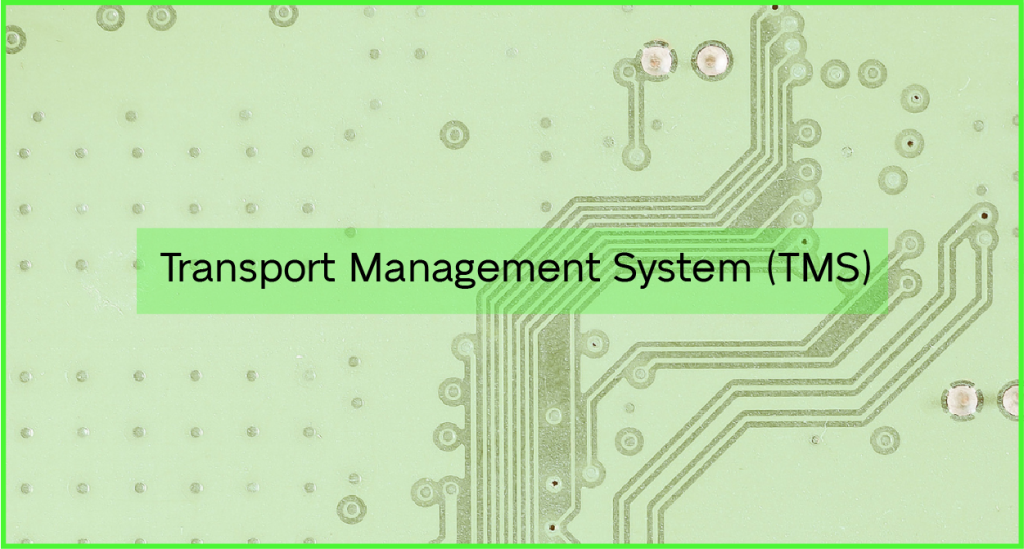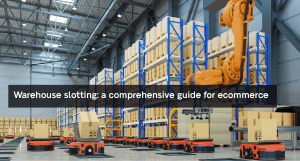To keep up effectively with the logistical promises made to their customers, modern businesses rely on Transport Management Systems (TMS), which have become essential tools to optimise shipping routes, balance expenses and enhance effectiveness. Let’s discover more about what a TMS is, its functions, and benefits for modern enterprises.
What is a Transport Management System (TMS)?
A Transport Management System (TMS) is an advanced technological platform and can be thought of as a control tower that oversees, optimises, and directs the operations of a vast logistics network. In other words, it is a central data repository with the main objective of allowing businesses to gain more visibility -and control- over processes, to better plan and coordinate their logistic operations. The main functions of a TMS are:
Dynamic planning: thanks to its capability of integrating with a company’s ERP (Enterprise Resource Planning systems), CMR (Customer Relationship Management) tools, and WMS Warehouse Management Systems (WMS), it allows for a comprehensive view of all supply chain processes in real-time, thereby supporting informed decision-making. It helps companies select the best shipment mode, the best carrier, and the best route, based on real-time data, like type of goods, cost, distance, traffic etc.
Execution: aTMS allows to track shipments in real-time, sharing information between carriers, warehouses, distributors, and customers. Advanced TMS systems allow businesses to manage complex international shipping tasks, like import documentation.
Analytics and reporting: a TMS stores all logistics-related data and analyses it, giving insights on routes, carriers, performance, and costs. Also it forecasts future trends, driving business growth and operational efficiency.
What is the difference between a TMS and a WMS?
The difference between WMS (Warehouse Management System) and TMS (Transportation Management System) becomes apparent when each is described individually. In fact, a WMS has the purpose of automating the processes of receiving, storing, and shipping goods, while TMS ensures maximum control over the logistics operations – from shipping to customer delivery, including handling paperwork, fleet management, checkpoints, and cost calculation.
However, they work together in a complementary way, as they operate at different stages of the supply chain. For example, transport document issuing is supported by the WMS database. Likewise, transport cost calculations in the transportation management system use storage information.
Managing operations manually 100% can pose significant challenges in achieving these objectives. After all, how can businesses have a complete and reliable view only with paper and notes? And how can employees make the right decisions if they base everything on their instinct? Having the right technology is fundamental, as a company’s growth may depend on it.
TMS and Omni-Channel fulfillment
With the rise of ecommerce and consumer demand, the concept of Omni-Channel Fulfillment (fulfilling orders from multiple channels like online, in-store, etc.) in the most efficient and flexible manner has become central. In such a context, the TMS becomes fundamental to streamline logistics and make it more sustainable, efficient, and customer-focused.
Key benefits of a Transport Management System (TMS)
Cost efficiency
A TMS helps to identify the most cost-efficient shipping options, considering variables and real-time data such as routes, carriers, and shipment types.
Real-time shipment tracking
TMS platforms provide real-time visibility into the status and location of a shipment, ensuring customers and businesses remain informed at every stage. Moreover, this visibility allows for quicker resolutions in case of problems with shipments.
Enhanced customer service
Thanks to more accurate delivery windows, real-time tracking, and efficient routes, customers can benefit from a superior and more transparent service.
Streamlined operations
A TMS automates many manual processes, from carrier selection to paperwork creation, saving time, reducing costs, and enhancing operations.
Data analytics and insights
TMS platforms collect and analyse vast amounts of data, providing insights into shipping patterns, performance metrics, and potential bottlenecks, all essential information to boost business growth and refine supply chain strategies.
Sustainability
Thanks to its route optimization features, which help reduce missed deliveries, the time spent on the road, fuel consumption, and emissions, a TMS allows for more environmentally friendly and sustainable operations.
In conclusion, a Transportation Management System (TMS) is an essential tool in modern logistics, a strategic asset that can greatly improve supply chain processes, orienting them towards a more environmentally friendly and customer-centric approach.





